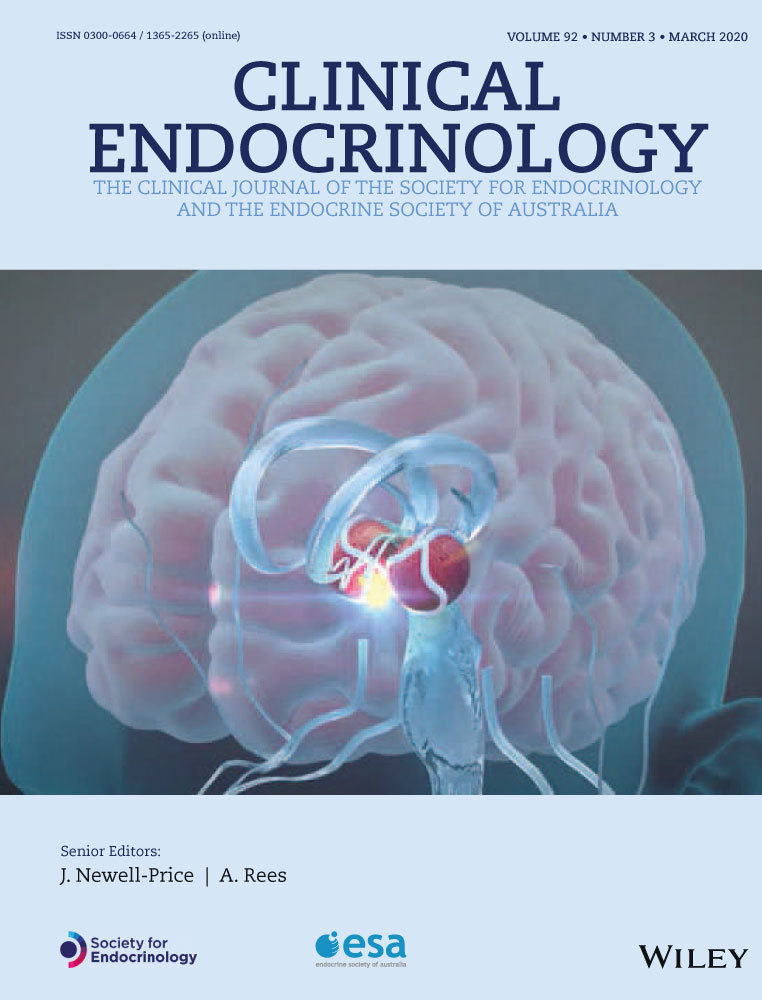The effects of age and obesity on postprandial dynamics of serum testosterone levels in men
Funding information
The SMELSS study was supported by a grant from the Fund for Scientific Research—Flanders (FWO-Vlaanderen, grant 1517316N).
Abstract
Objective
Guidelines recommend using fasting samples to evaluate testosterone (T) levels in men, as free and total T levels decrease postprandially. However, it is not clear whether these dynamics are affected by age or obesity. This could be relevant given the obesity epidemic, ageing population and the barrier for screening which fasting could impose.
Design/Participants
A total of 43 men underwent a solid mixed meal tolerance test. Serum samples were taken fasting, and at 30, 60 and 120 minutes postprandially. A commercial immunoassay was used to determine sex hormone-binding globulin (SHBG) levels, liquid chromatography coupled to tandem mass spectroscopy for total T concentrations and free T levels were calculated.
Results
Postprandially, both total and free T were lower at all-time points compared with fasting (all, P < .005). At 60 minutes, maximum mean decreases of 15 ± 15% and 17 ± 16% were seen for total and free T levels, respectively. Younger men had greater decreases in both total and free T levels compared with men older than 40 years (all, P < .05). A greater decrease at 30 and 60 minutes postprandially was observed for both total and free T levels in nonobese vs obese men (all, P < .05).
Conclusions
After a mixed meal, total and free T serum levels decreased whereas SHBG levels did not change. Interestingly, postprandial decreases were less pronounced in men older than 40 years and/or with obesity. Although this study indicates less pronounced decreases in certain men, fasting samples remain a prerequisite for establishing correct diagnosis of male hypogonadism.
CONFLICT OF INTEREST
The authors state they have no conflict of interest.
Open Research
DATA AVAILABILITY
The data that support the findings of this study are available from the corresponding author upon reasonable request.




